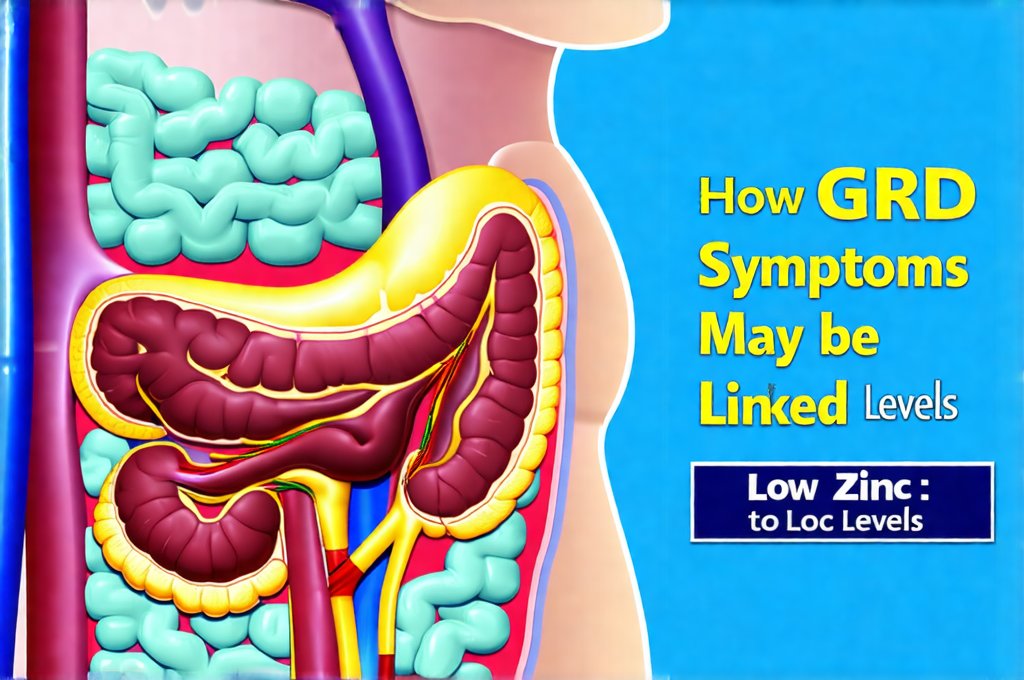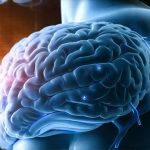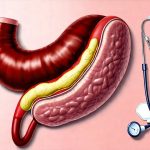Gastroesophageal reflux disease (GERD), characterized by frequent heartburn and acid regurgitation, affects millions worldwide. While commonly managed with medications like proton pump inhibitors (PPIs) and lifestyle changes, the underlying causes are often multifaceted and not fully understood. Many individuals experience persistent GERD symptoms despite conventional treatments, prompting a search for alternative contributing factors. Increasingly, research suggests a potential link between suboptimal zinc levels and the development or exacerbation of GERD symptoms, pointing to a more nuanced understanding of digestive health. This connection stems from zinc’s crucial role in numerous physiological processes vital for gut function and esophageal integrity.
Conventional approaches to GERD often focus on reducing stomach acid production, but this doesn’t address potential deficiencies that might contribute to the problem in the first place. Focusing solely on symptom management can sometimes mask underlying issues. Zinc is an essential trace mineral involved in over 300 enzymatic reactions within the body, including digestion, immune function, wound healing, and maintaining healthy tissues. A deficiency could therefore disrupt multiple systems impacting GERD symptoms, creating a complex interplay between nutritional status and gastrointestinal health. Exploring this connection offers opportunities for more holistic and potentially effective management strategies alongside traditional treatments. Perhaps starting with how to track symptoms could help pinpoint individual issues.
The Role of Zinc in Esophageal & Gastric Health
Zinc plays a critical role in maintaining the integrity of the esophageal lining and gastric mucosa – the protective barriers that prevent acid from damaging tissues. It’s involved in cellular growth, repair, and differentiation, all vital for rebuilding these barriers when they are compromised by acid exposure. Inadequate zinc levels can weaken these defenses, making the esophagus more vulnerable to irritation and inflammation caused by refluxed stomach acid. This isn’t about causing GERD initially but potentially worsening existing symptoms or slowing down healing processes.
Furthermore, zinc is essential for proper functioning of the lower esophageal sphincter (LES), the muscle that prevents stomach acid from flowing back into the esophagus. While the exact mechanisms aren’t fully elucidated, zinc appears to influence LES tone and responsiveness – a deficiency may contribute to a weakened or inappropriately relaxed LES, facilitating reflux episodes. This can create a vicious cycle: frequent acid exposure damages the esophageal lining, requiring more zinc for repair, but low zinc levels hinder that repair process, leading to further damage. Understanding acid reflux links could provide additional insight.
The stomach itself relies on zinc for healthy functioning. Zinc is involved in the production of gastric acid, although it’s a delicate balance – too little or too much can be problematic. It’s also crucial for the synthesis of digestive enzymes like pepsin, necessary for protein breakdown. A deficiency could impair digestion and potentially lead to delayed gastric emptying, increasing the risk of reflux as food remains in the stomach longer. This complex interplay highlights why zinc isn’t simply a “cure” but an integral part of a healthy gastrointestinal system that supports proper acid management. It is also important to consider low FODMAP meals as part of a holistic approach.
Zinc Deficiency: Causes & Contributing Factors
Identifying the root causes of zinc deficiency is crucial for addressing potential links to GERD symptoms. While overt zinc deficiency is relatively rare in developed countries, suboptimal levels are surprisingly common due to several factors. Dietary intake is a primary concern, as many modern diets lack sufficient zinc-rich foods or contain high levels of phytates – compounds found in grains and legumes that can inhibit zinc absorption.
- Vegetarian and vegan diets may require more conscious effort to ensure adequate zinc intake, as plant-based sources have lower bioavailability compared to animal products.
- Certain medical conditions, such as Crohn’s disease, ulcerative colitis, and celiac disease, can impair nutrient absorption, including zinc.
- Medications like PPIs (often used for GERD) themselves can interfere with zinc absorption over prolonged use, creating a paradoxical situation where the treatment contributes to a deficiency that exacerbates symptoms.
- Chronic stress and alcohol consumption can also deplete zinc levels in the body.
Determining if you are deficient requires medical evaluation, as relying solely on symptoms isn’t reliable. A blood test measuring serum or plasma zinc levels is a starting point, but it doesn’t always accurately reflect tissue zinc stores. More specialized tests, such as erythrocyte mineral analysis, can provide a more accurate assessment of long-term zinc status. Supplementation should always be guided by a healthcare professional to avoid exceeding recommended daily allowances and potentially causing adverse effects. A better understanding of gut reactions may also prove helpful.
The PPI – Zinc Connection: A Complex Relationship
Proton pump inhibitors (PPIs) are frequently prescribed for GERD, effectively reducing stomach acid production. However, their long-term use has been increasingly associated with nutrient deficiencies, including zinc. This is due to several mechanisms. First, reduced stomach acidity impairs the ionization of food components, making it harder for the body to absorb minerals like zinc. Zinc absorption relies on a slightly acidic environment in the stomach.
Second, PPIs can alter the gut microbiome, potentially impacting zinc absorption and utilization. A healthy gut microbiome aids in digestion and nutrient uptake. Disrupting this delicate balance can lead to malabsorption of essential nutrients. Third, some studies suggest PPIs may directly interfere with zinc transport mechanisms within the intestinal cells.
It’s important to note that not everyone taking PPIs will develop a zinc deficiency, but the risk increases with prolonged use (over several months or years). If you are on long-term PPI therapy and experiencing persistent GERD symptoms despite medication, discussing zinc levels with your doctor is advisable. Strategies might include periodic monitoring of zinc status, dietary adjustments to increase zinc intake, or exploring alternative GERD management approaches under medical supervision. You may also find comfort without symptoms helpful in adjusting your diet.
Dietary Sources & Supplementation Considerations
Increasing zinc intake through diet should be the first line of defense against deficiency. Excellent sources of bioavailable zinc include:
- Oysters (the richest source)
- Red meat
- Poultry
- Beans and legumes (though phytates reduce absorption, soaking can help)
- Nuts and seeds (pumpkin seeds are a good option)
- Whole grains (choose minimally processed options)
However, dietary sources alone may not be sufficient for individuals with significant deficiencies or malabsorption issues. Zinc supplementation can be effective, but it’s crucial to choose the right form and dosage. Several forms of zinc supplements exist:
- Zinc picolinate: generally considered well-absorbed
- Zinc citrate: another highly absorbable option
- Zinc gluconate: less expensive but absorption may be lower
- Zinc oxide: poorly absorbed and not recommended for correcting deficiencies
It’s important to take zinc supplements with food to minimize gastrointestinal side effects, such as nausea. High doses of zinc can interfere with copper absorption, so long-term supplementation should ideally include a small amount of copper. Always consult with a healthcare professional before starting any new supplement regimen, especially if you have underlying medical conditions or are taking other medications. They can help determine the appropriate dosage and form based on your individual needs and circumstances. Also consider confidence around food to reduce anxiety surrounding dietary choices.
It’s vital to remember that addressing potential zinc deficiencies is just one piece of the GERD puzzle. A comprehensive approach involving lifestyle modifications (diet, weight management, stress reduction), identifying trigger foods, and working closely with a healthcare professional remains essential for effective long-term management. In some cases, gut symptoms may also play a role.


















